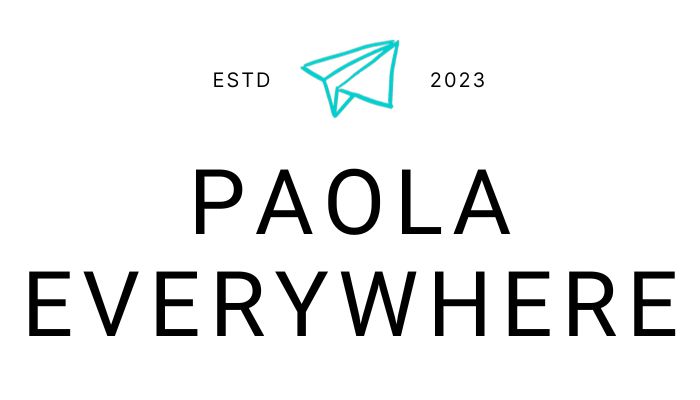Tunisia is the perfect destination for relaxing family holidays, but it also hides unsuspected treasures to explore. In addition to a beautiful blue sea and kilometres of sandy beaches, Tunisia offers numerous Roman ruins, ancient medinas, coastal fortifications and exciting museums to understand Arab culture better.
Table of Contents
Tunisia: attractions and reasons to visit
Tunisia is definitely the first destination to approach to discover North Africa because it is safe and well-equipped to welcome tourists. There are also many things to see and a beautiful sea, perfect for a family beach holiday between Djerba, Hammamet, Sousse and the other resorts on the coast.
PLAN YOUR TRIP TO TUNISIA
When in Tunisia, stay connected at the best rates by purchasing an Airalo eSIM online before your trip. This eliminates the hassle of purchasing a physical SIM at the airport.
In addition, remember to purchase Heymondo travel insurance that provides coverage against unexpected events such as medical emergencies, trip cancellations, lost luggage, and more. It offers great value for money and ensures a stress-free and enjoyable trip!
Among Tunisia’s attractions is its capital, Tunis, with a fascinating medieval medina and a newer part whose architecture reflects French colonial influence. The Bardo National Museum is in the sumptuous residence of the bey, surrounded by a lush garden, and houses a rich collection of perfectly preserved Roman mosaics.
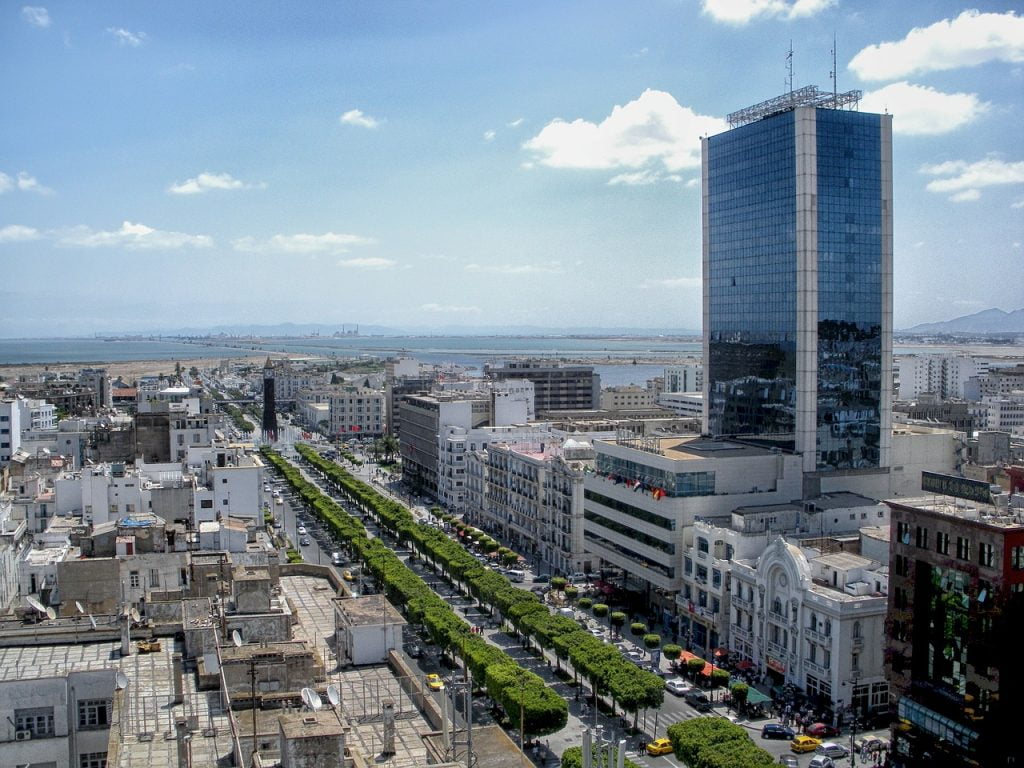
Indeed, in Tunisia, you will find numerous remains of cities conquered by the Romans, such as the famous Carthage. In the country’s centre is Quayrawan (Kairouan), famous for its Great Mosque, the fourth holiest site in the Islamic world.
Sousse and Sfax, on the other hand, are famous for their perfectly preserved medinas. In particular, because it is less touristy, Sfax is also more authentic. Don’t forget the charming Monastir, with its perfectly preserved and highly atmospheric Ribat fortress and the opulent Bourghiba Mausoleum.
As you can see, Tunisia also has much to offer from a cultural point of view, including some less famous but fascinating historical museums in the main cities. You can choose it as a destination for a mainly beach and sea holiday and then visit the attractions around you.
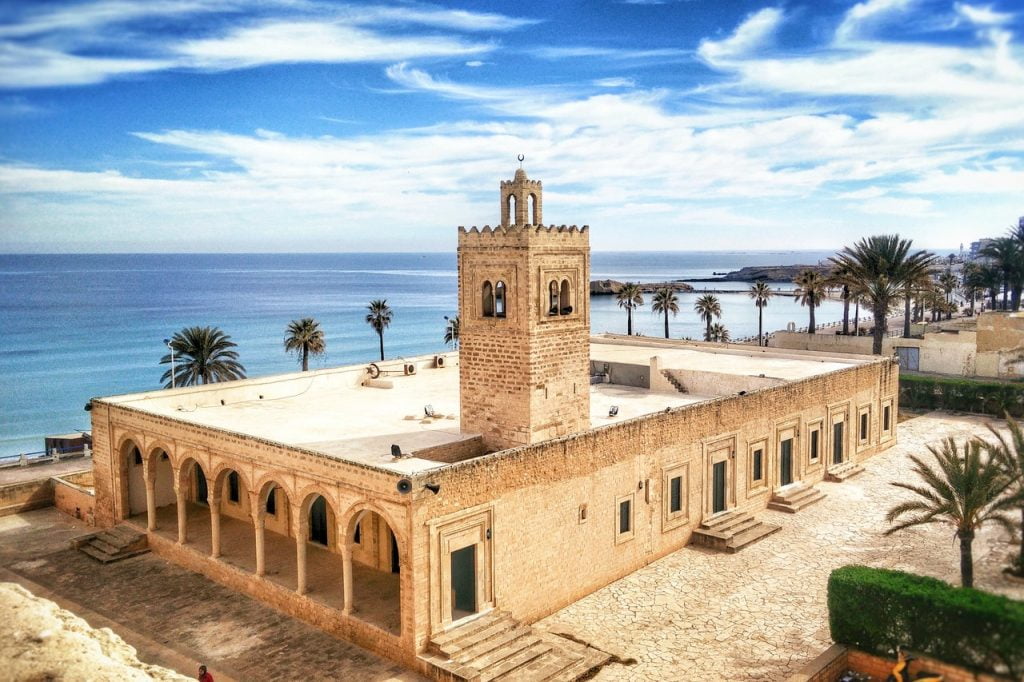
Hotels and resorts in Tunisia
Hotels in Tunisia mainly cater to the all-inclusive holiday market with large resorts and luxury hotels. In the big cities, you can find hotels suitable for Western travellers in all categories and price ranges. On the other hand, mid-range hotels are not always available. Sometimes, you can only find luxury hotels and spartan facilities.
If you intend to organise an independent trip on the road, it is always a good idea to check the facilities in the destinations you want to visit before you leave. Also, remember that in Tunisia, the number of stars is only sometimes a good indicator of the quality of service. The classification is based on parameters such as the number and size of rooms and the presence of certain services.
In the medinas, you can also find super spartan unclassified hotels called auberges. Some can be very charming, others decidedly not recommendable. I have not tried them, but I have always relied on tourist resorts with a swimming pool and private beach.
As for beach hotels and resorts, they are generally friendly and well-maintained, with a classic holiday style. However, do not expect varied menus or dozens of different restaurants. Generally, the service is simple with buffet restaurants as they’re mainly designed for budget family holidays.
Day trips in Tunisia
Once you have chosen the area to spend your holiday in Tunisia, you can organise numerous day trips. For example, if you stay in Hammamet, you can visit the Villa Sebastian and the Medina and reach them by taxi from seaside hotels. Or organise a day trip to Tunis and Carthage to see colonial architecture, the Kasbah fortification and Roman ruins.
From Sousse, on the other hand, you can reach almost all destinations in the centre-north of Tunisia by lounge or collective taxis. I just did that and independently visited Sfax, Monastir and Quayrawan (Kairouan) from Sousse. If you prefer, you can also participate in day trips organised by local tour operators, less adventurous but undoubtedly better for seeing the country’s sights during a short holiday.
Things to know before travelling to Tunisia
To enter Tunisia, you must have a passport with a residual validity of at least three months. Mobile phones with European SIM cards work well everywhere, and you can use your credit thanks to the roaming agreement between telephone companies. To save money, consider an Airalo SIM card, an eSIM (a digital SIM card) that solves the pain of high roaming bills during your trips.
Tunisia is a fantastic destination for the sea and enjoying the excellent Mediterranean climate and breezy coastline. It is a tremendous short-range destination, especially in autumn and winter, because summer can be sweltering, with temperatures above 40°C, especially in the south.
The country is entirely bilingual, with Arabic as the official language and French spoken by almost everyone. The official religion is Islam, to which the general rules of Muslim countries apply. There is no entry to mosques and covered clothing in the more traditional areas, especially for women. However, wearing Western clothing and bikinis in tourist areas and resorts is fine.
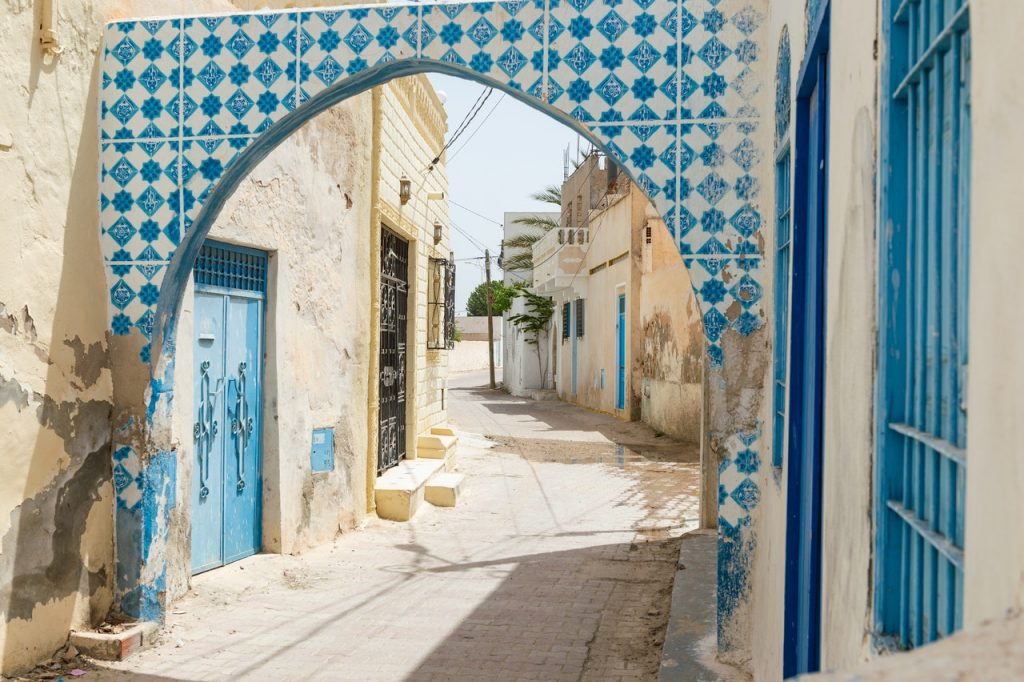
Money and credit cards
Among the practical information you absolutely must know before setting off on a trip to Tunisia are those concerning money and transport. Regarding the first topic, European credit cards are almost always accepted in tourist areas and hotels. However, using cash in markets and shops outside the resorts is better.
Tunisia’s currency is the Tunisian dinar (TND), and you can exchange it only in Tunisia. Bear in mind that there are stringent currency formalities in Tunisia, and money can be confiscated if you do not comply with the rules. So, you must stay within the cash threshold you can import or export. However, this should be fin for tourists and travellers. The limit is 25,000 Tunisian dinars, which is equivalent to about €8,000/£7,000 at the time of writing.
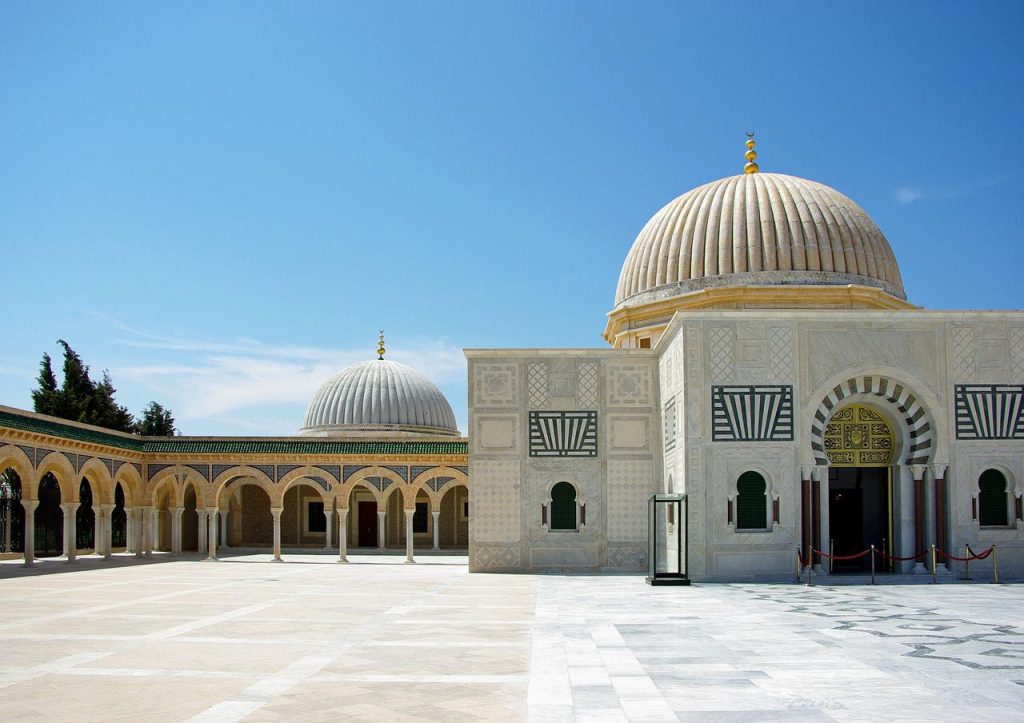
Transport
In Tunisia, you can drive with a European driving licence. Still, I advise against renting a car, both because of the cost (it might be cheaper to import your European vehicle temporarily) and because of the driving style of Tunisians. Especially outside built-up areas, there are many fatal accidents every year.
The use of seat belts is only compulsory on the front seats, while I found nothing about the rules for child seats (I went to Tunisia before my son was born). If you travel with children and book a transfer or a chauffeur-driven tour, you can usually request a car seat – and I recommend doing so for greater safety, given the accident rate.
Louage
To move around Tunisia independently, i.e., without relying on tour operators and hiring a car, you can depend on louages or collective taxis. They are one of the most used and convenient means of transport for getting around the country. For us Europeans, the louage system is almost unknown and even seems folkloric, yet this network of minibuses connects most Tunisian cities very efficiently.
The louages are generally old white vehicles with nine seats, including the driver. You can find them at particular stations; they only leave when full. This transport system operates mainly during the day, starting at 6:00 am. Each vehicle uses a specific route, indicated by a sign on the vehicle, and you can ask for confirmation from the drivers who shout out the destinations before setting off.
If you want to try this rather adventurous experience, you can buy tickets from the driver or at the ticket office in the larger stations. Louages fares are always fixed with regulated prices. Scams are rare even if the tourists using louages are few and the drivers are not always amiable.
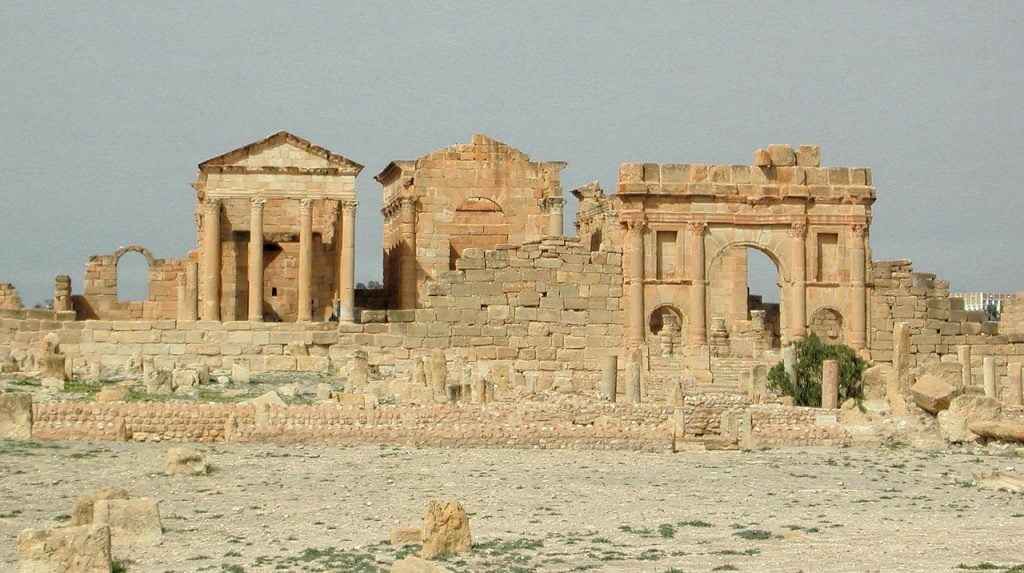
Tips for women travelling alone
Travelling in Tunisia is relatively easy, and you can meet many friendly people ready to share their culture. However, from my own experience, I would avoid venturing alone into remote areas. It is different if you speak Arabic or can mix better with the locals. No matter how well you speak French, the local language is Arabic despite the country being completely bilingual.
Your appearance and your journey itself will scream that you are a tourist. Generally, in Tunisia, women don’t travel alone. If you travel alone, you will have a lot of prejudice, but you are unlikely to run into a seriously threatening situation. However, you will be constantly pestered to buy something or treated with condescension if you try to take a collective taxi.
This is not to say that you will not be able to make a solo trip to Tunisia, but rather that you will have to take precautions to avoid any trouble. For instance, wearing dark glasses will help prevent being ogled and thus not being bothered. Also, if you want to go outside the more touristy areas, remember to wear long clothes to avoid attracting attention.
I take no pleasure in giving this kind of advice; I am for moving everywhere with politeness and respect without compromising one’s culture. However, I did receive a shove and a few insults in the medina of Sfax for a below-the-knee skirt and a T-shirt that were very modest by our Western standards.
One way to limit these unpleasant mishaps is to rely on guided tours for at least the first few days to understand better the local culture and which of our behaviours can be unintentionally problematic. Many of these tours can be booked from home while you are still planning your trip.
Discovering Tunisia with children
Tunisia is a country accustomed to Western tourism, so travelling with children is easy. Tunisians are welcoming and well-disposed towards children. In the big cities, you can find everything you need for the little ones, such as nappies or baby food.
Older children can participate in many activities, including camel rides in the desert or excursions to archaeological sites. But they will almost certainly appreciate, above all, the beautiful sea and the endless kilometres of sandy beaches in Tunisia.
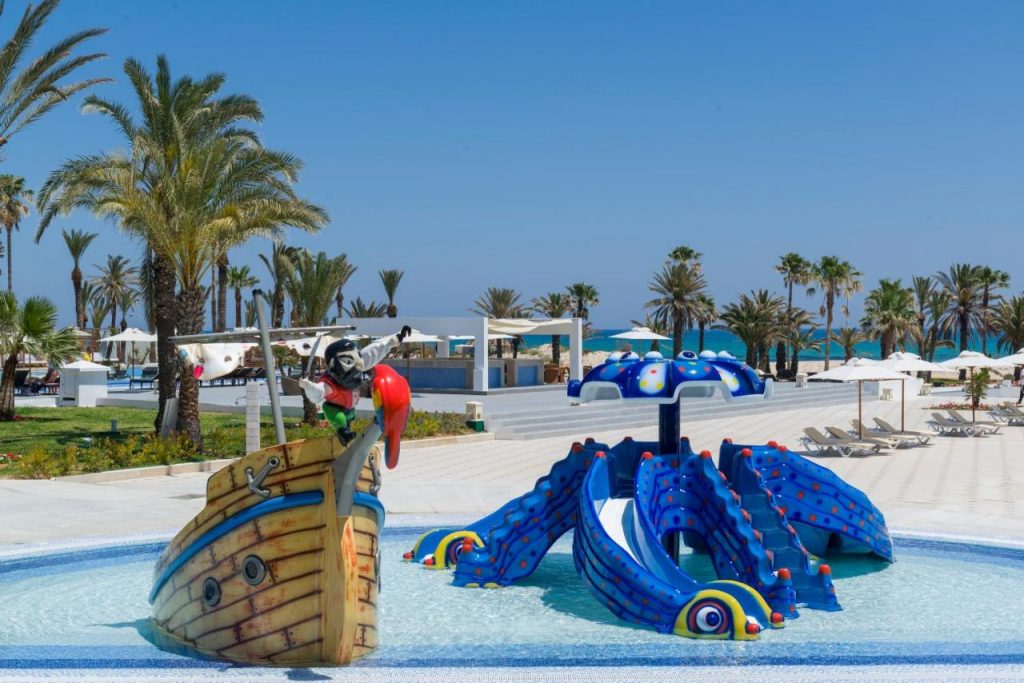
Tunisia: organised tour or independent travel
Tunisia is a destination where it is easier to find cheaper all-inclusive offers from tour operators than an independently booked trip on a mid-budget. For this reason, check your travel agent before embarking on a complicated independent trip. You can save much money with a travel package and then book independent day trips.
To discover Tunisia, I have always chosen a mixed formula: stay in a beach resort and book independent day trips with a local guide. This solution is perfect, especially if you are travelling with children, especially if it includes an airport transfer that saves you from dragging your children and suitcases to the taxi stand.
I hope this information, based on my previous trips to Tunisia, is helpful to you. In the comments, tell me about your experience and impressions of Tunisia.
